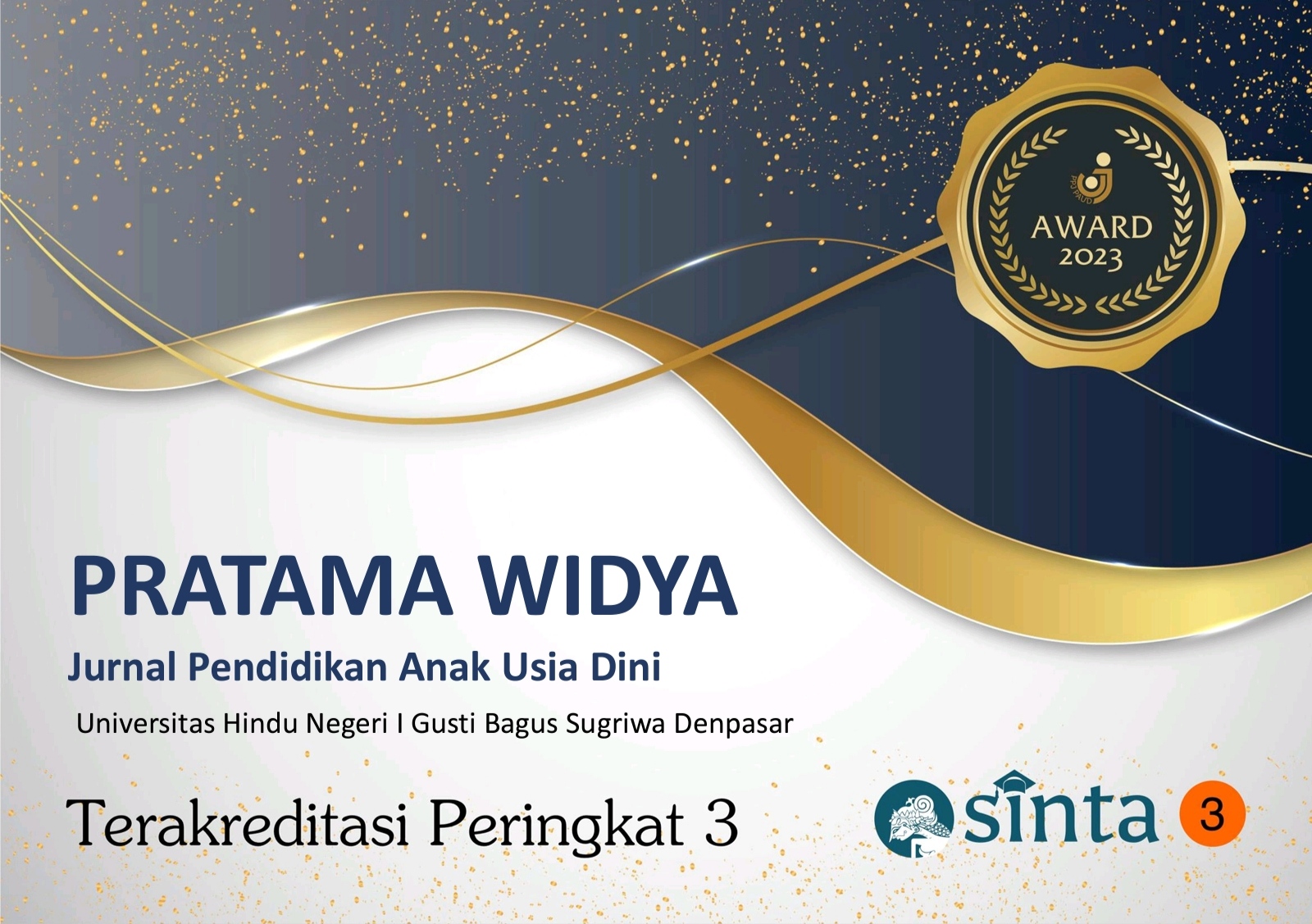PEMBELAJARAN SAINS MELALUI METODE BERMAIN PADA ANAK USIA DINI KELOMPOK B DI TK PARAMAWANGSA DENPASAR UTARA
DOI:
https://doi.org/10.25078/pw.vi.421Kata Kunci:
Science Learning, Playing Methods, KindergartenAbstrak
The development of science learning for early childhood is the child's ability to solve the problems he faces through process science. Learning science in kindergarten, in general, is still in the form of concepts and memorization, such as teaching about the solar system, rather than teaching process science. Science learning is still teacher-centered so that children's attention becomes unfocused because children are not invited to be directly involved in the scientific process. In addition, conducting science experiments is the door to entering the world of science. If done in childhood, it will have great potential to be a pleasant childhood memory. For Kindergarten children, science process skills should be carried out simply while playing. Through the science process children can do simple experiments to train children to think logically.
The problems that will be discussed include (1) the application of science learning through playing methods in group B early childhood in Tk Paramawangsa Denpasar (2) Constraints found in the application of science learning through playing methods in group B early childhood in Tk Paramawangsa Denpasar (3) Efforts are being made to overcome obstacles in the application of science learning through playing methods in early childhood group B in Tk Paramawangsa. This study aims to (1) Know how to apply science learning through playing methods in the early childhood group B Paramakangsa Denpasar (2) to find out the obstacles found in the application of science learning to children in group B in Tk Paramawangsa Denpasar (3) knowing efforts made in overcoming the obstacles to the application of science learning to early childhood group B in Paramawangsa Kindergarten.
Unduhan
Diterbitkan
Cara Mengutip
Terbitan
Bagian
Lisensi

Artikel ini berlisensiCreative Commons Attribution-NonCommercial-ShareAlike 4.0 International License.









